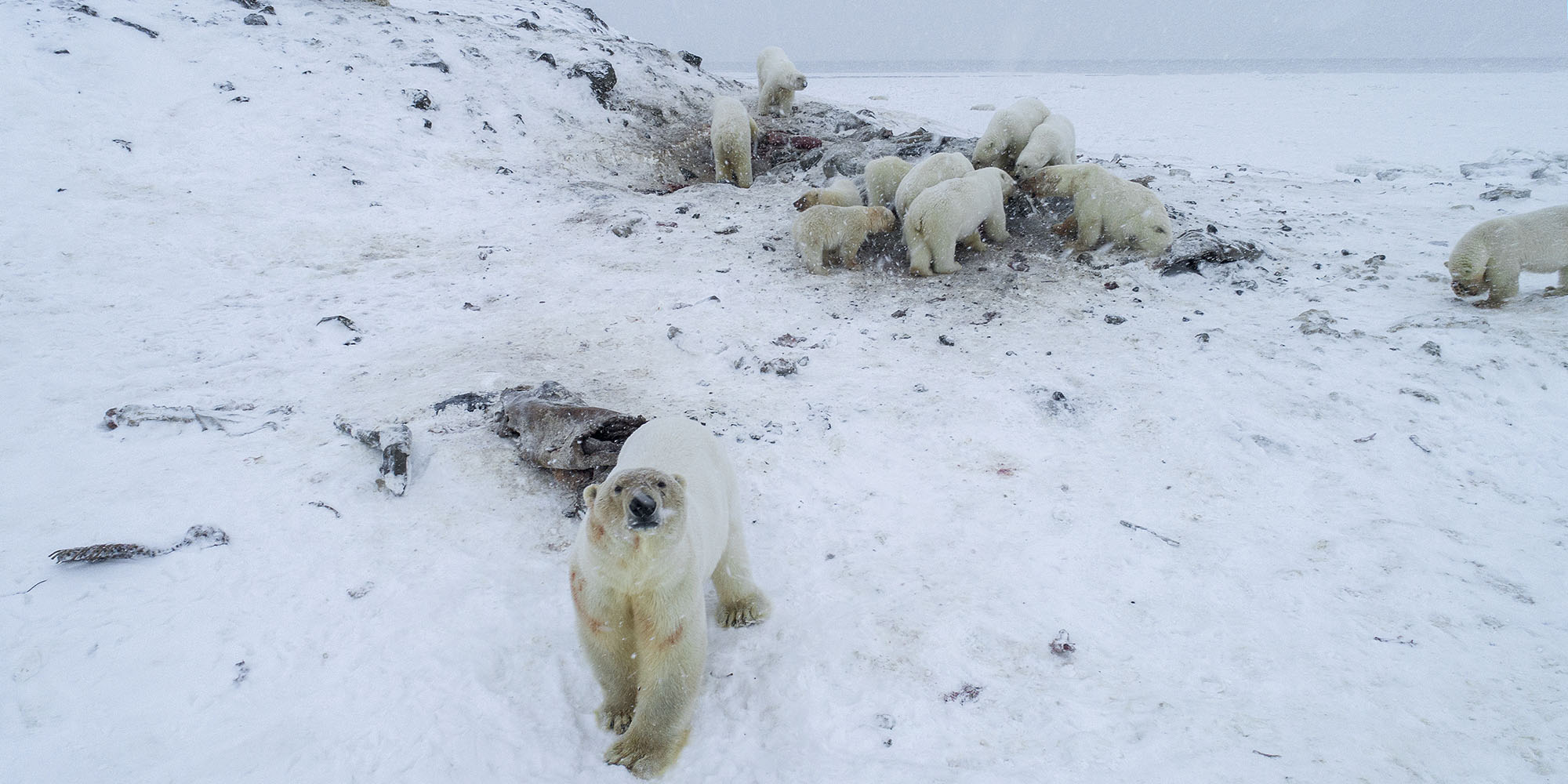Fifty-six polar bears gathered on the outskirts of a Chukotka village in the far north-east of Russia, fed by locals, because of the late formation of the pack ice. The bears are currently near the town of Ryrkaypi, which has between 600 and 800 inhabitants, as the ice on the sea is not strong enough to allow them to hunt, a consequence of climate change, according to Russian media reports. and the environmental organization WWF. With the arrival of the beasts, the villagers disposed at a good distance of the village of the corpses of walrus to feed the plantigrades.
"With other organizations, we created this feeding point with walrus bodies that were gathered along the coast, and the bears eat," Ria Novosti agency spokeswoman Tatiana Minenko told reporters on Friday. of the "Ursid Patrol", a local association. But according to her, because of the large number of individuals, males seek to grab food, repelling females and cubs.
The inhabitants are preparing for the entry of bears in the village
According to the head of this association, the presence in number of bears is no longer an exceptional phenomenon because for years, the pack ice is forming late, one of the effects of climate change. "As long as there is no big freeze, the sea will not be caught by the ice and the bears will stay on the coast," she said. The Chukotka region also stated in a statement that "this phenomenon in the vicinity of Ryrkhapici has been repeated several times in recent years" and that the situation was "under control". "For security reasons, all the public events have (however) been canceled in the village," said the authorities.
If the bears were to attempt to enter the locality, it is planned to keep them at bay by frightening them with fires or distress flares. According to the meteorological services, questioned by Ria Novosti, the fall in temperatures in this region is expected Saturday, and the pack ice should solidify from December 11. In both the Arctic and Antarctic, ice melting has accelerated in recent decades, resulting in a decline in icepack and ice cap and a change in the habitat of animal species in these areas. As a result, polar bears venture closer to villages or towns in Russia's Far North in search of food.

